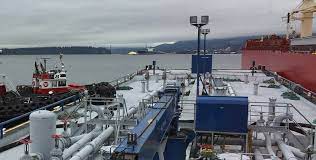
There are several factors to consider when choosing marine fuel oil. For starters, you need to know that gasoline and diesel have a limited shelf life, usually three to six months or one year. After that time, the gasoline or diesel will begin to oxidize and break down. However, you can extend the life of marine fuel by adding fuel stabilizers to it. Fuel stabilizers must be marine-specific, and they prevent phase separation and oxidation. Phase separation is a problem when water enters your tank and causes the gasoline or diesel to separate. When this happens, it can cause the engine to knock, which is a major safety issue.
Sulphur 2020:
The IMO has issued a mandate for marine fuels that contain less than 0.50% sulphur. However, while the goal is to limit sulphur content in marine fuels, it does not address the issue of greenhouse gas emissions. In April 2018, the IMO issued its first strategy to reduce GHG emissions by ships and is currently developing mid-term and long-term strategies.
Commonly used marine fuels:
Fuels used by ships are often petroleum-based. Their sulphur content varies depending on the type and blend of crude. Heavy Fuel Oil (HFO) is one of the most common fuels, containing an average of 2.54 percent sulphur. IMO monitors the sulphur content of fuel oils and has made lowering the sulphur content mandatory for all ships as of 2020.
Alternative fuels:
Alternative marine fuels come in a wide variety of types, each with its pros and cons. These fuels may differ in their GHG emission and safety risks, capital and operational expenditure, and availability. For this reason, it is important to compare them on an apples-to-apples basis. While the IMO Initial Strategy calls for the use of alternative marine fuels to reduce the emission of greenhouse gases, the environmental impact of each fuel type must be weighed against its advantages and disadvantages.
Cost:
The rising cost of marine fuel is a headache for boat owners and operators. It is expected that prices will reach new records this summer. The skyrocketing cost of fuel will impact both commercial and recreational boaters. Increasing fuel prices may force people to make shorter trips or rely on alternate sources of fuel.


